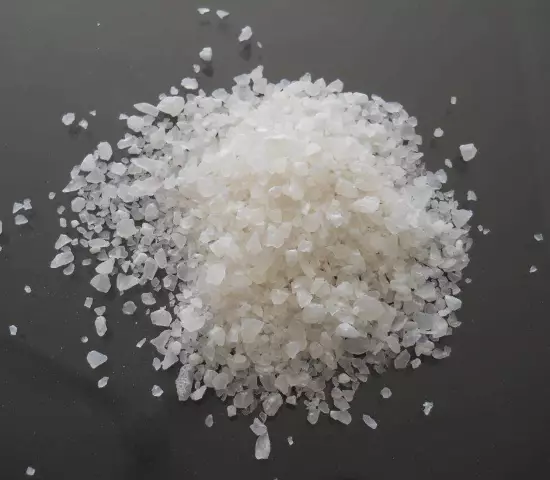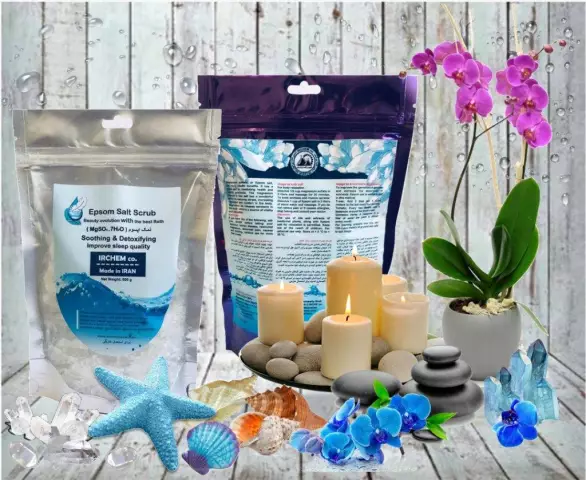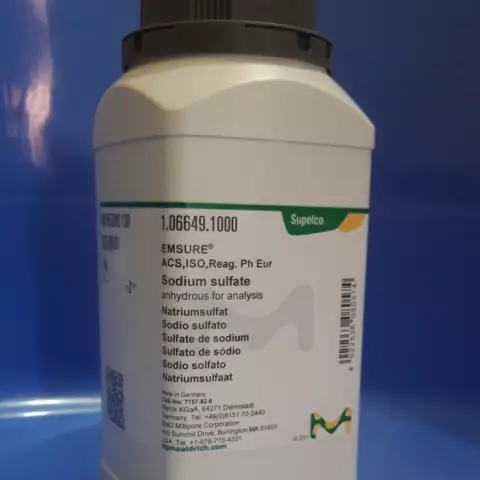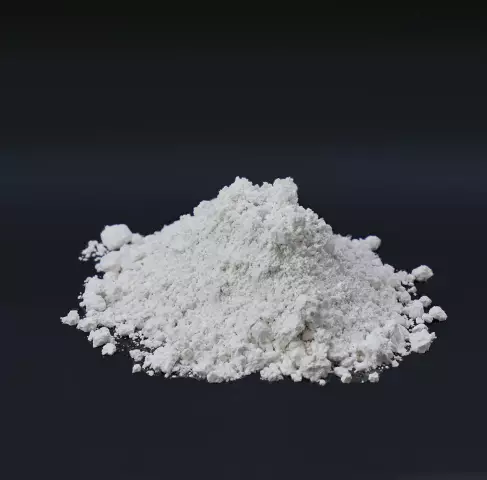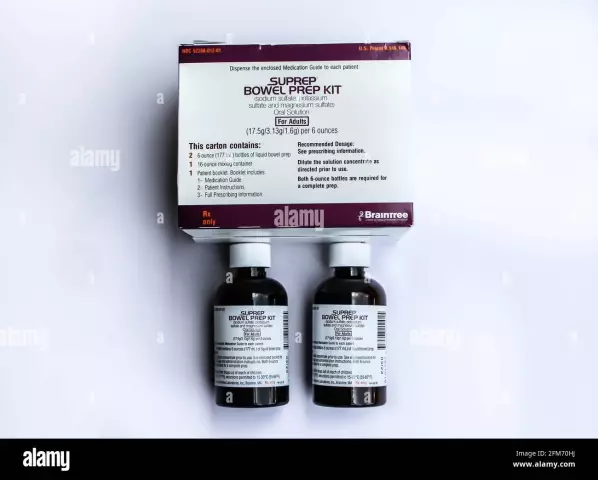- Author Rachel Wainwright wainwright@abchealthonline.com.
- Public 2023-12-15 07:39.
- Last modified 2025-11-02 20:14.
Aluminum sulfate

Aluminum sulfate is a chemical compound with the formula Al2 (SO4) 3.
Aluminum sulphate is soluble in water and is mainly used as a flocculant for the purification of drinking and industrial water in wastewater treatment plants, as well as in papermaking.
Aluminum sulphate is sometimes referred to as sulfuric acid, aluminum-ammonia alum or food additive E 523. The anhydrous form occurs naturally as a rare mineral Millozevichite, found in volcanic environments, and is also obtained by burning coal waste. Aluminum sulfate forms many different hydrates, including crystalline hydrate Al2 (SO4) 3 * 16H2O and octadecahydrate Al2 (SO4) 3 * 18H2O.
Aluminum sulfate has the ability to absorb and retain water molecules from the surrounding atmosphere.
Obtaining technical aluminum sulfate is possible by adding aluminum hydroxide Al (OH) 3 to sulfuric acid H 2 SO 4.
It is also possible to obtain aluminum sulfate from sodium tetrahydroxoaluminate.
Aluminum sulfate is a white or almost white crystalline or odorless compound in powder form. It is soluble in water, non-volatile and flammable. Aluminum sulphate has an extremely sour taste.
Applications of aluminum sulfate
Aluminum sulfate solution is used for water purification and as a dye in textile processing. In the process of water purification, a solution of aluminum sulfate leads to coagulation, unwanted impurities and contaminated particles settle to the bottom of the vessel and are easily filtered out.
When dissolved in a large amount of neutral or slightly alkaline water, the aluminum sulfate solution forms a gelatinous precipitate of aluminum hydroxide Al (OH) 3, which is used in printing and dyeing fabrics, since it is an insoluble pigment.
Aluminum sulphate is sometimes used to lower the pH of the garden soil, which in turn causes certain types of flowers (Hydrangeas) to bloom again.
Aluminum sulfate is an active ingredient in some antiperspirants.
In construction, it is used as a waterproofing agent and accelerator in concrete production.
Aluminum sulfate can be used to combat shellfish, insects and slugs.

It is also used in the manufacture of fire extinguishers, soil and fertilizer additives, soaps, fats, pharmaceuticals and cosmetics.
In medicine, aluminum sulfate is used in medicines that relieve pain and discomfort caused by insect bites. It helps break down toxic chemicals found in bites and helps reduce their effects on the skin. These drugs come in the form of sprays that are applied directly to the affected skin and are more effective when used immediately after the bite.
The harm of aluminum sulfate
Aluminum sulfate is harmful if swallowed or inhaled. Inhalation of aluminum sulfate vapors causes coughing and possibly shortness of breath.
On contact with skin or eyes, aluminum sulfate causes irritation, redness, itching and pain. Ingestion of aluminum sulfate leads to severe irritation of the intestines and stomach, accompanied by vomiting, nausea and diarrhea.
This compound can cause severe burns if in contact with exposed skin.
First aid for poisoning with aluminum sulfate
If aluminum sulfate comes in contact with the skin or eyes, rinse the affected area with water. If the vapors are inhaled, it is necessary to get out of the toxic area and slowly catch your breath. If aluminum sulfate has been taken internally, it is necessary to drink a glass of milk and then induce vomiting.
In case of poisoning with aluminum sulfate, in no case should bicarbonates be used, since such a combination is literally explosive.
Storage of aluminum sulfate
Aluminum sulfate should be stored in a cool, dry place in a tightly closed container, without mixing with other substances.
Found a mistake in the text? Select it and press Ctrl + Enter.

